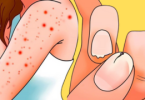Red blood cells use a substance called hemoglobin to carry oxygen to the body.
Anemia is a general term for having fewer than normal red blood cells or an abnormally low amount of hemoglobin in each red blood cell.
Symptoms of vitamin B12 or folate deficiency
Vitamin B12 and folic acid play several important roles in the body, including maintaining a healthy nervous system.
A deficiency in any of these vitamins can cause a variety of problems, including:
extreme fatigue
lack of energy
pins and needles
sore, red tongue
mouth sores
muscle weakness
problems with your vision
psychological problems that can range from mild depression and anxiety to confusion and dementia
problems with memory, perception, and judgment
Some of these problems may occur if you are deficient in vitamin B12 or folic acid but are not anemic.








Leave a Comment